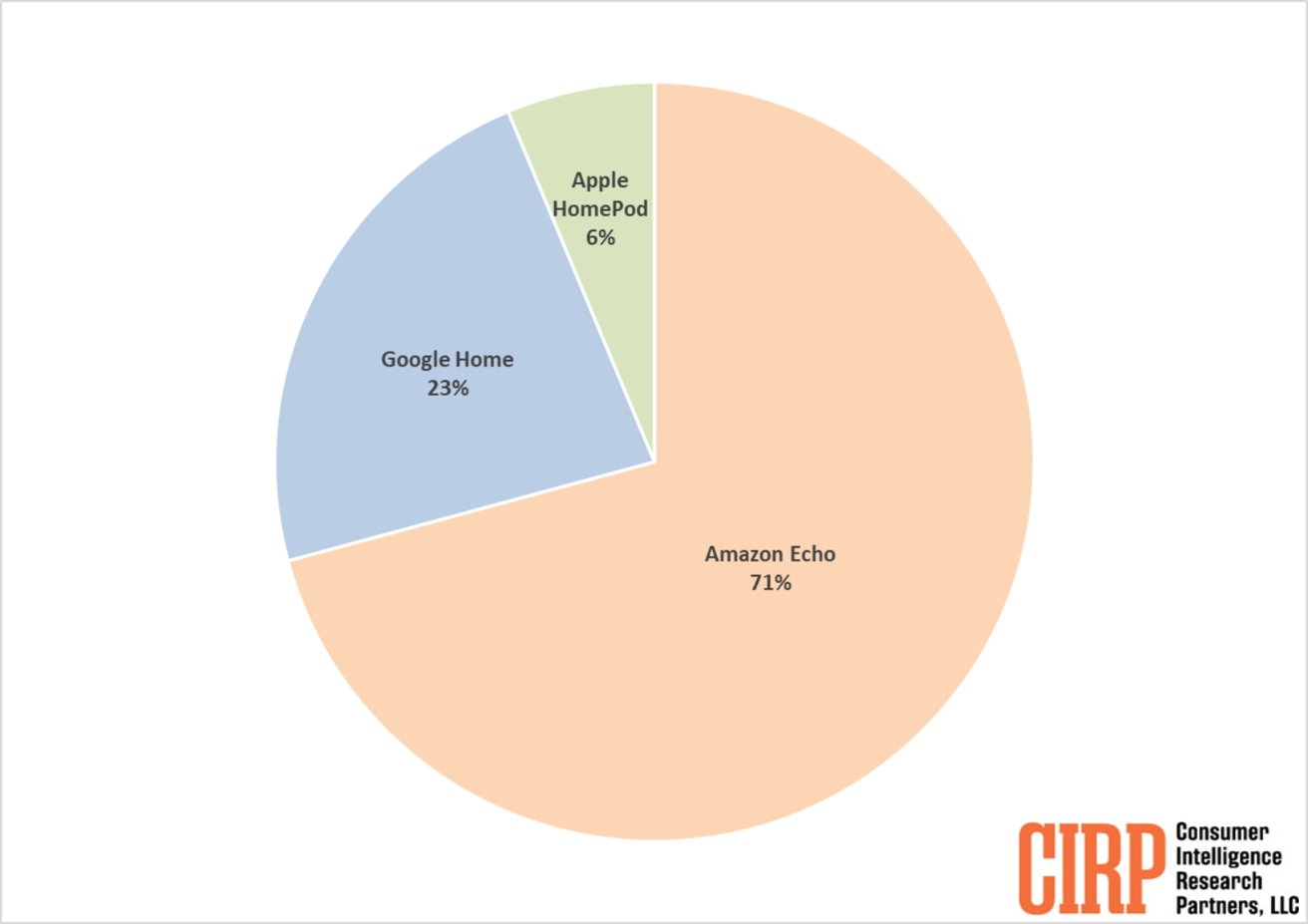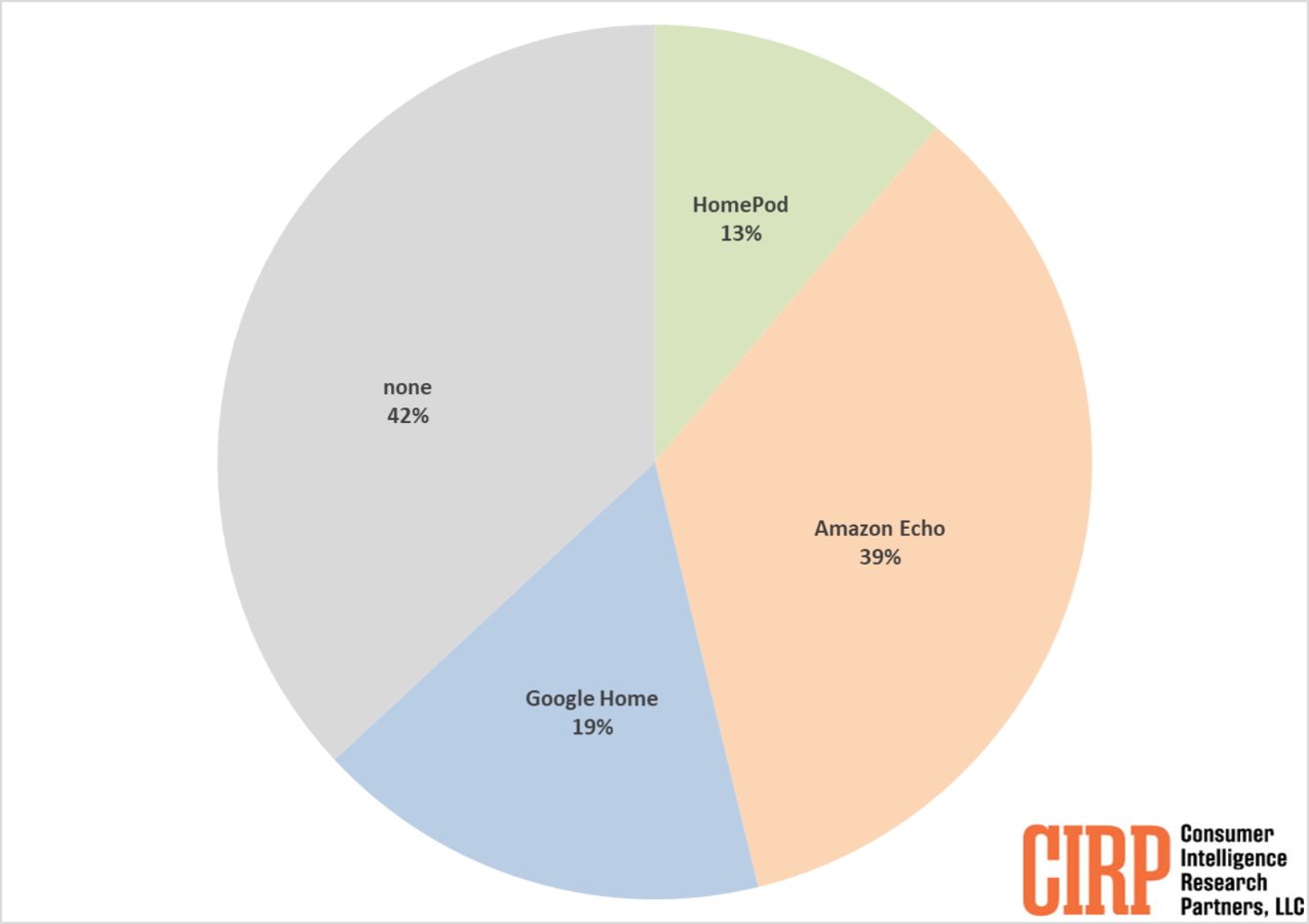news@appleinsider.com (Andrew Orr)
2024-10-16 12:05:00
appleinsider.com
Despite Apple’s dominance in consumer tech, its smart home speaker strategy is lagging behind Amazon and Google. But the company has a new strategy.
Apple, a leader in smartphones, tablets, and wearables, has struggled to replicate its success in the smart home market. Recent reports show that the company’s smart home offerings struggle to secure a significant market share.
Apple’s woes with smart speakers are particularly evident, with Amazon’s Echo series and Google’s Home devices dominating the market. A Consumer Intelligence Research Partners (CIRP) survey reveals that Amazon’s Echo commands over two-thirds of the U.S. market, while Google holds about one-quarter.
Despite its claims, Apple’s HomePod only has a 6% market share, significantly lower than its competitors. Moreover, 40% of Apple device owners who have purchased iPhones, iPads, Macs, or Apple Watches in the past year also own an Amazon Echo, while 19% own Google’s smart speakers.
Apple’s HomePod has only 13% of customers, indicating it’s losing to competitors and failing to attract its most loyal users.
The ecosystem dilemma
The entrenched nature of smart home ecosystems, with Amazon and Google’s more extended history and broader device integration, poses a challenge for Apple. Platform stickiness, similar to iOS vs. Android, hinders Apple’s progress.
Percentage of smart speaker owners who purchased a device in the twelve months leading up to June 2024. Image credit: CIRP
Smart home users stick with their setups, and Amazon and Google’s interconnected platforms seamlessly integrate with third-party devices. Apple struggles to introduce better integration without convincing users to overhaul their arrangements.
The company’s cautious approach, the high price, and the limited functionality of its first HomePod hindered adoption. Its focus on premium devices with tight ecosystem integration didn’t translate well in the smart speaker market.
Apple’s HomeKit platform faced challenges due to strict requirements for third-party accessory makers.
Apple’s new strategy
To address these challenges, Apple is enhancing its HomePod line with broader accessory support, improved integration with Apple Intelligence, and possibly a screen-based home device. The company refines its HomeOS software for a seamless smart home experience but faces challenges in making significant inroads.
Proportion of Apple customers who own a smart speaker during the twelve months leading up to June 2024. Image credit: CIRP
The smart home market levels off with fewer groundbreaking innovations. Many users prefer smart speakers for streaming music or checking the weather over complex home automation systems.
Apple needs compelling use cases to convince consumers to invest in its ecosystem. Despite planned improvements, the company faces a challenging battle in the mature smart speaker market.
Amazon and Google lead with an extensive head start. The question is whether Apple can offer something truly different to distinguish itself.
Support Techcratic
If you find value in Techcratic’s insights and articles, consider supporting us with Bitcoin. Your support helps me, as a solo operator, continue delivering high-quality content while managing all the technical aspects, from server maintenance to blog writing, future updates, and improvements. Support Innovation! Thank you.
Bitcoin Address:
bc1qlszw7elx2qahjwvaryh0tkgg8y68enw30gpvge
Please verify this address before sending funds.
Bitcoin QR Code
Simply scan the QR code below to support Techcratic.

Please read the Privacy and Security Disclaimer on how Techcratic handles your support.
Disclaimer: As an Amazon Associate, Techcratic may earn from qualifying purchases.

























































![Steven Spielberg Director’s Collection (Jaws / E.T. The Extra-Terrestrial / Jurassic Park / The Lost World: Jurassic Park / Duel / The Sugarland Express / 1941 / Always) [Blu-ray]](https://techcratic.com/wp-content/uploads/2024/11/819nyYoJflL._SL1500_-360x180.jpg)










![App Store is Down for Many Users [Resolved]](https://techcratic.com/wp-content/uploads/2024/10/iOS-App-Store-General-Feature-JoeBlue-75x75.jpg)


